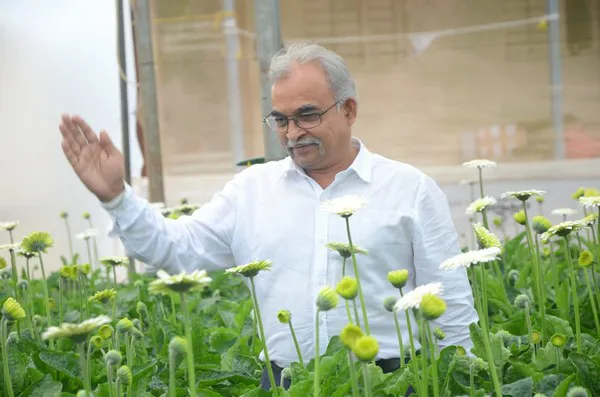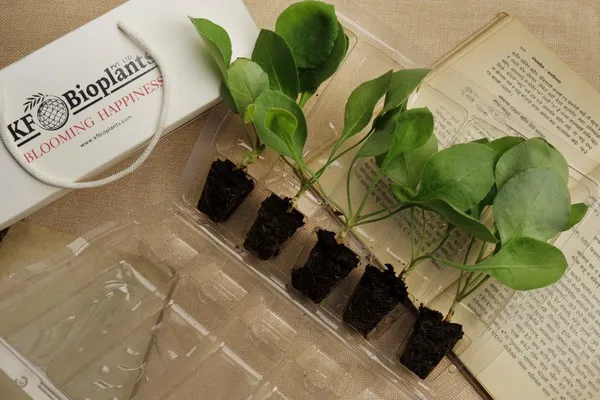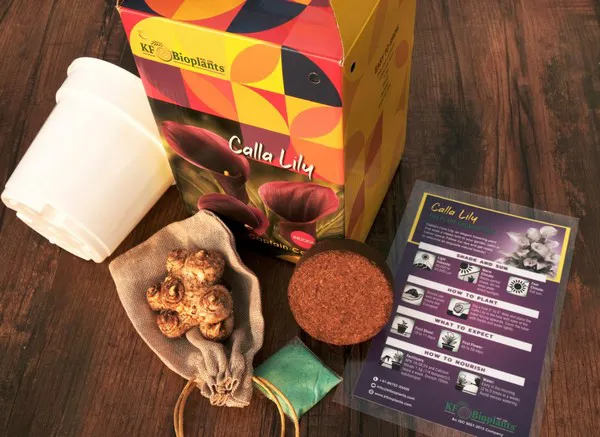“Over the last 3-4 years, there have been many challenges in Indian floriculture, making it more difficult for local companies to sustain their business. Therefore, it is important for us to provide a platform for flower promotion in the domestic market,” says Kishore Rajhans, Director at KF Bioplants. The company is India’s largest plant tissue culture company, and has been serving over 30 countries worldwide for the last 30 years. “We have seen phenomenal growth these last 7 years with 125,000 square feet facilities, producing over 80 million plants per year.” Rajhans reflects on the challenges in Indian floriculture, the changing demand they have noticed over the years, as well as their future expansion plans.
Kishore Rajhans
Challenges in Indian floriculture
According to Rajhans, there are both international and local challenges that KF Bioplants has to deal with. “There is still a lot of uncertainty, as regulations for shipping and traveling are changing faster than the market. The cost of freight and possibilities of flight options are the major hurdles. We hope that the world will open up again soon.”
There are also more local challenges in Indian floriculture. “We cater to almost 90% of the Indian market, concerning the supply of young plants of ornamental cut flowers, especially for Gerbera and Gypsophila. However, over the last 3-4 years, Indian floriculture has had some challenges, making it more difficult for companies to sustain their business. This is mainly due to demonetization, tax reforms, and irregularities in subsidies for this sector. On top of this, due to the impact of the pandemic these past two years, protected cultivation for cut flowers is in trouble. However, our growers have a positive and motivated spirit, and we continue to fight back and are trying to streamline the industry to normalcy. To ensure the existence and survival of floriculture in India, KF Bioplants has been instrumental to establish a platform for flower promotion in the domestic market through “Growers’ Flower Council of India”."
Green Gifting Limonium
International exports: a paradigm shift
“We supply tissue culture plants/young plants of cut flowers as well as perennials and pot plants globally, and recently there have been noticeable changes,” says Rajhans. As for many companies in the industry, the international demand has increased over the years. “But there has also been a paradigm shift concerning the specific demand. Where cut flowers used to be the most in demand, now perennials and pot plants are more popular. Possible reasons for this are the demographic changes, but also the new work-from-home culture due to the pandemic.”
Concerning the Indian market, there are changes as well. “We notice that the millennial generation is keen for innovations and ready for experimentation. Their demand is important to keep in mind, as over 60% of the Indian population is a younger generation. As a result, we came up with Green Gifting. This is a DIY kit that includes a plant of choice, along with a pot, substrate for growing, a fertilizer pouch, and clear growing constructions. These kits are gradually gaining popularity among the urban population.”
Green Gifting Calla Lily
100 million plants and 2 new laboratories
KF Bioplants aims to continue their growth, and they have ambitious goals. “Our vision is to cross a production of 100 million tissue culture plants per year by the end of 2023. In order to achieve this number, we are planning two additional laboratories.”
For more information:
KF Bioplants
Email: [email protected]
www.kfbioplants.com
Sign up for our daily Newsletter and stay up to date with all the latest news!
Subscribe I am already a subscriber